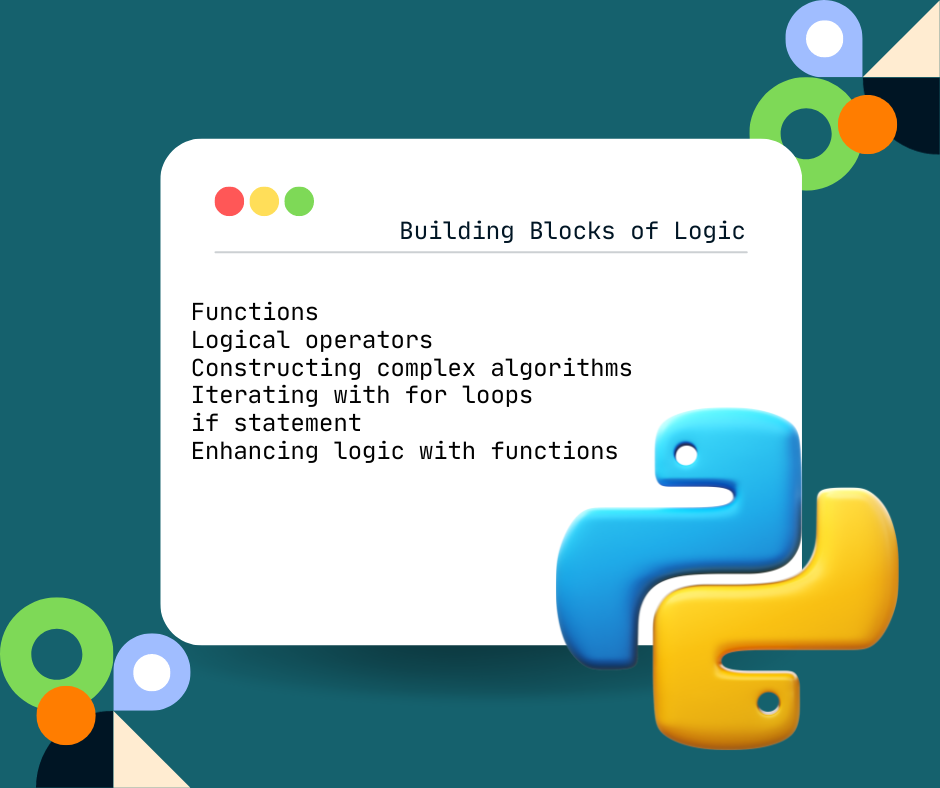Python stands out as a powerful programming language with a wide range of applications. However more than just a basic comprehension of syntax is required to realize its full potential. You need to learn how to build logic in Python if you want to really succeed. We will explore advanced control structures like loops conditional statements and functions in this comprehensive guide to help you create Python programs with powerful logic that is both complex and powerful.
The Importance of Logic Construction in Python Programming:
Understanding the Foundation:
Before we get into the specifics of building logic let’s establish a solid foundation by comprehending the fundamental ideas of Python.
Python is a great language for both novice and experienced programmers due to its ease of use and readability. It uses a space-based structure permitting you to compose perfect and brief code.
The Power of Loops:
When it comes to creating logic, loops are absolutely necessary. There are two primary types of Python loops: for the duration We will investigate these circles top to bottom, revealing their exceptional applications and how they can smooth out your code.
Conditional Statements
Conditional statements such as if, Elif, and else, are necessary instruments for directing your program’s flow. You will learn how to make decisions and conditions in your code allowing you to deal with a variety of situations.
Building Blocks of Logic:
Now that we’ve laid the basis, we should investigate the key structure blocks of rationale in Python.
Functions: Your code building block:
Capabilities assume a vital part in rationale development. They permit you to typify explicit errands and reuse code effectively. We’ll direct you through characterizing and using capabilities actually.

Logical operators:
Consistent administrators, including and, or, and not, empower you to control conditions and make unpredictable rationale. You’ll dominate these administrators and use them to create exact dynamic cycles.
Constructing complex algorithms:
With a strong comprehension of Python’s structure blocks, you’ll presently figure out how to apply them to make complex calculations.
Iterating with for loops:
for circles are great for emphasizing arrangements, like records and tuples. We’ll show you how to use them to do repetitive tasks and efficiently process data.
Making a decision with an if statement:
Conditional statements are the core of building logic. You’ll learn how to use if statements to run particular blocks of code based on certain conditions, opening up a world of possibilities for your programs.
Enhancing logic with functions:
Capabilities will turn into your clear-cut advantage in Python programming. Figure out how to plan particular and reusable code, saving time and exertion over the long haul.
Problem Solving in the Real World :
Python’s logic-building capabilities go far beyond simple programs. You can easily deal with problems in the real world.
Implementing Advanced Functionality:
In this section, we’ll show you how to incorporate advanced functionality into your Python programs. This incorporates dealing with client input, and document tasks, and the sky is the limit from there.
Case study: data analysis:
To outline the force of Python’s rationale-building capacities, we’ll walk you through a true contextual investigation. You’ll perceive the way Python can be utilized to dissect information, go with informed choices, and infer significant bits of knowledge.
A Better Understanding:
By the time we get to the end of this comprehensive guide, you will have a better understanding of the fundamental ideas behind Python and the art of building logic.
Mastering Python:
By the time you reach the end of this guide, you will have honed your knowledge of Python and be well-equipped to take on challenging programming tasks. You can become an expert in Python logic building with practice.
Conclusion:
All in all, figuring out how to fabricate rationales in Python is a crucial stage towards turning into a capable software engineer. With the information acquired from this aide you can make modern calculations take care of certifiable issues and execute progressed usefulness in your Python programs.
